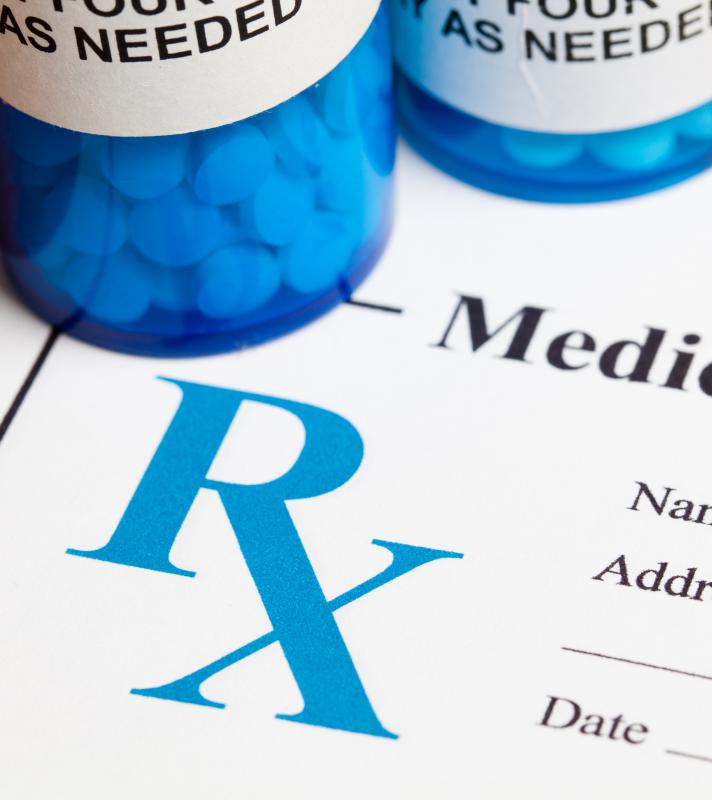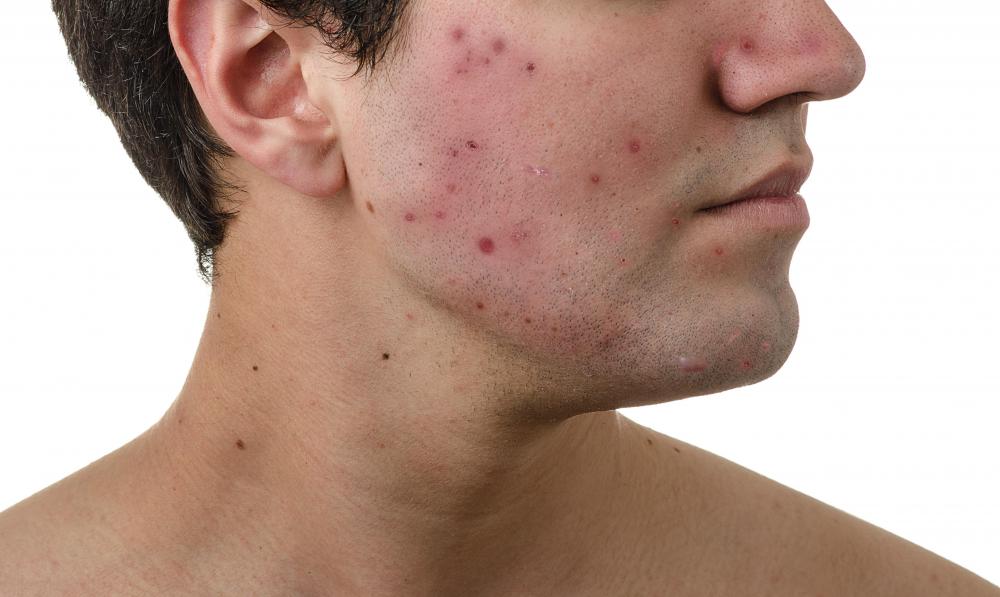At WiseGEEK, we're committed to delivering accurate, trustworthy information. Our expert-authored content is rigorously fact-checked and sourced from credible authorities. Discover how we uphold the highest standards in providing you with reliable knowledge.
What are the Different Types of Acne Treatments?
Many different types of acne treatments exist. Like most medications, there are over-the-counter and prescription varieties. Over-the-counter medications include rub-in creams, facial scrubs and medicated pads. Prescription medication usually involves one of these treatments only with a higher concentration of the active drug in each dose. In recent years, oral medication to treat severe acne has come onto the market.
No matter the over-the-counter acne treatment, the active ingredient is either salicylic acid or benzoyl peroxide. The concentration of medication is between 2.5% and 10%. Salicylic acid works by unclogging pores and restricting their size, preventing future bacteria from entering. Benzoyl peroxide also clears pores but has the added benefit of exfoliating dead skin cells. The two options exist as some users might have mild side effects to one but not both chemicals.

Rub-in creams are the first category of acne treatments. The user will rub in a small amount of cream into both the affected and surrounding area. As the cream will not show on the skin, rub-in creams are appropriate for both morning and night. Like all over-the-counter acne treatments, rub-in creams are appropriate to use wherever acne is present on the body.

Out of the three acne treatments, facial scrubs balance acne prevention and cure. Done usually in the shower, the user will apply the scrub like soap and then wash off the residue. Face and whole body treatment scrubs exist. Some body washes have acne medication built in so the user can wash and treat simultaneously.
Medicated pads have certain advantages and disadvantages. Pads are easy to use and can remove facial grease without water. Yet the same alcohol solution that removes grease can also quickly dry out skin. Users who experience this side effect should consider combining acne treatments.

If over-the-counter acne treatments are insufficient, a general physician or dermatologist can prescribe a prescription cream or scrub. At first these medications might only have a higher concentration of benzoyl peroxide or salicylic acid. If these options are insufficient, doctor and patient can discuss using more powerful acne treatments.
In cases of severe acne where other treatment methods have failed, oral drugs like isotretinoin have shown promise. A patient can take isotretinoin for four to six months and perhaps longer if acne persists. The medication carries risks as studies have found a link between it and clinical depression. Those considering isotretinoin will need to discuss possible side effects with their doctor before making a decision.
AS FEATURED ON:
AS FEATURED ON:















Discussion Comments
@feruze-- That's a good point. I tried lots of different things too, including medications and natural acne treatments. And then one year, I got transferred to a new doctor who suggested that I take a detailed food allergy test.
The results were unbelievable. I found out that I was allergic to 16 different types of foods, herbs and spices, the main one being milk. I stopped drinking milk and eating milk products and my acne cleared up soon after.
I had never thought that food was the cause of my acne before. And I agree with you that acne treatments need to be specific to that person. We act like all acne is caused by one thing like dead skin or oil but those are just the symptoms, not the underlying cause.
@fify-- You're lucky that diet and acne treatment products are enough for you to prevent acne. I have cystic acne which is a very serious kind of acne that is not easily treatable. I have infected nodules under my skin that give me a lot of pain and stay for months.
I've tried all sorts of treatments but the only thing that works is oral medications, especially antibiotics. No matter how much I clean my skin or how healthy I eat, I can't seem to prevent cysts from forming. I have to take medications.
The same goes for people who have acne because of hormonal issues and imbalances. Nothing will work except for medications to stabilize hormones. So treatment really depends on why that person has acne in the first place.
I think the best acne treatment is simply preventing it. My acne is due to my pores producing too much sebum (oil) and it's mainly triggered by foods and stress. I have breakouts when I eat nuts, chocolate and have caffeinated sodas. So I try and avoid these foods and also use a special moisturizer that keeps the sebum production to a minimum.
I'd rather try methods to avoid acne in the first place than to try and get rid of it later. Because once breakouts happen, they often leave scars behind. I have some scars from several years ago that are still visible and I don't want anymore.
Post your comments